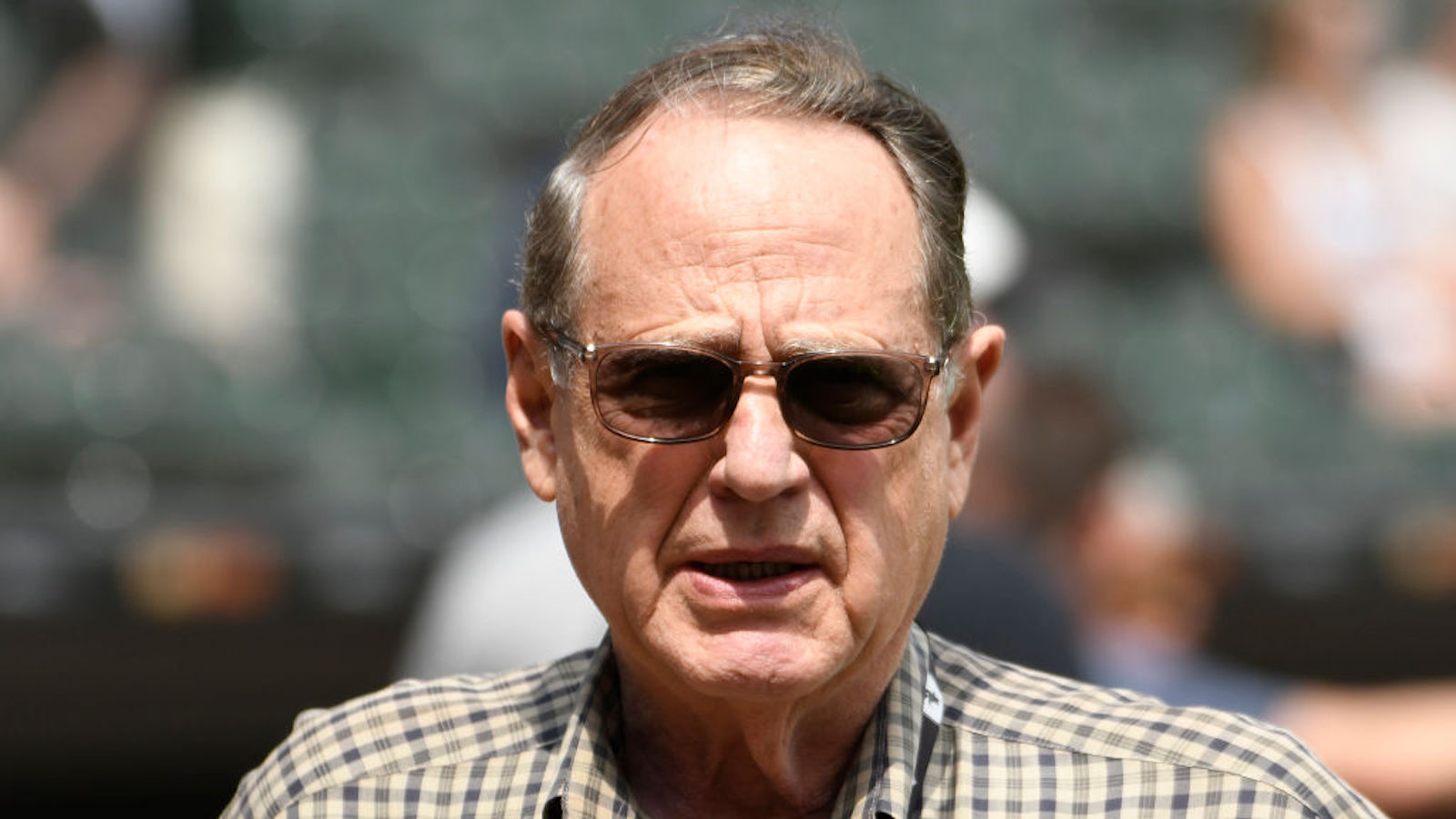Through three quarters of the baseball season, the centerpiece of the Chicago White Sox highlight video has been Tim Anderson getting punched in the face by Cleveland's José Ramirez. But Jerry Reinsdorf, the team's 87-year-old owner and designated scowl didn't see much upside in that cinematic tour de force so he decided to blow up everything—and when you're 87, you're probably not planning to see the results of the rebuild.
It wasn't enough that Reinsdorf fired his top two baseball people, Kenny Williams and Rick Hahn, for supervising a $181 million roster that is only better than the Kansas City Royals and Oakland Athletics. That's baseball, and given that Williams had been with the organization for more than 30 years and Hahn more than 20, it can't be said they weren't given enough time.
No, when we said "blow up everything," we meant everything including the long-term potential of the White Sox in Chicago. Jerry's apparently going through one of his I-hate-this-team phases, like the time he helped prevent the San Francisco Giants from moving to Tampa because he was trying to blackjack a stadium out of the Illinois Legislature and needed a city for leverage, or the time about a decade ago when he gave his kids the sage advice to sell the White Sox and keep the Bulls. And based on current results, there's a lot here to hate.
Not enough, mind you, to openly flirt with Nashville as a potential site for the team if it doesn't get a stadium built by others in the Chicagoland area, but Reinsdorf is not a timewaster in matters like leverage. His negotiating style has always started by selecting the right hammer, and even though the Sox's lease at their current digs has another six years to run, Reinsdorf is clearly more in a day-to-day mode. So, with the team in freefall and the front office's two biggest offices being converted for storage, the story from Crain's Chicago Business, which actually predated the firings, provides all the subtlety of a hippo being dropped from the ceiling of a cathedral.
It's not that leaving Chicago is a wise move in terms of audience size, nor is it that Nashville is clamoring for a baseball team because its future as a financial center cannot stand on bachelorette parties alone. But moving a baseball team isn't about a new audience, as the A's are trying to prove by moving to Las Vegas, which also has given no sign that its citizens want baseball more than, say, pothole repair. It's about finding a piece of dirt and a desperate politician with access to other people's money, an audience of one to replace a yearly attendance of 1.6 million.
The truth here is that Reinsdorf has made multiple millions in his 42 years, but he isn't having nearly the fun that money should provide. Other than the World Series the Sox won in 2005 when the Houston Astros were still in the National League, Reinsdorf's teams have never won a postseason series, and the current team has a lack-of-fighter's chance to be the third in franchise history to lose 100 games. In more contemporary terms, nobody's making a version of The Last Dance for the White Sox.
These are fractious times in baseball. The A's are in the starting blocks for Vegas just as the planet is trying to recreate Venus. The Milwaukee Brewers want a new ballpark to replace the one they have despite it being in fine condition and barely 20 years old. Kansas City is looking covetously for a new ballyard. Baltimore owner John Angelos is complaining about money he hasn't had to spend yet for the good players on his best team in four decades. The Yankees and Mets are what the Giants and Jets usually are. The Angels are getting Mike Trout back just in time for people to remember how hard it is to do what they do with him and Shohei Ohtani.
So no, the White Sox aren't special. Hell, mostly they're the team you can't remember when you're asked to name the membership of the AL Central. But today we notice them because their owner kind of hates them for doing what the White Sox typically do, only a little harder. Jerry Reinsdorf's last big win on the team's behalf was side-dooring Harold Baines into the Hall of Fame, and that was a PR disaster based on the reaction of those few people who still think the Hall of Fame is based solely on merit. That's not enough to carry one through seasons like this, and Reinsdorf has decided after years of silence to do things that people notice, and as any reclusive billionaire will tell you, that's never a good sign.






